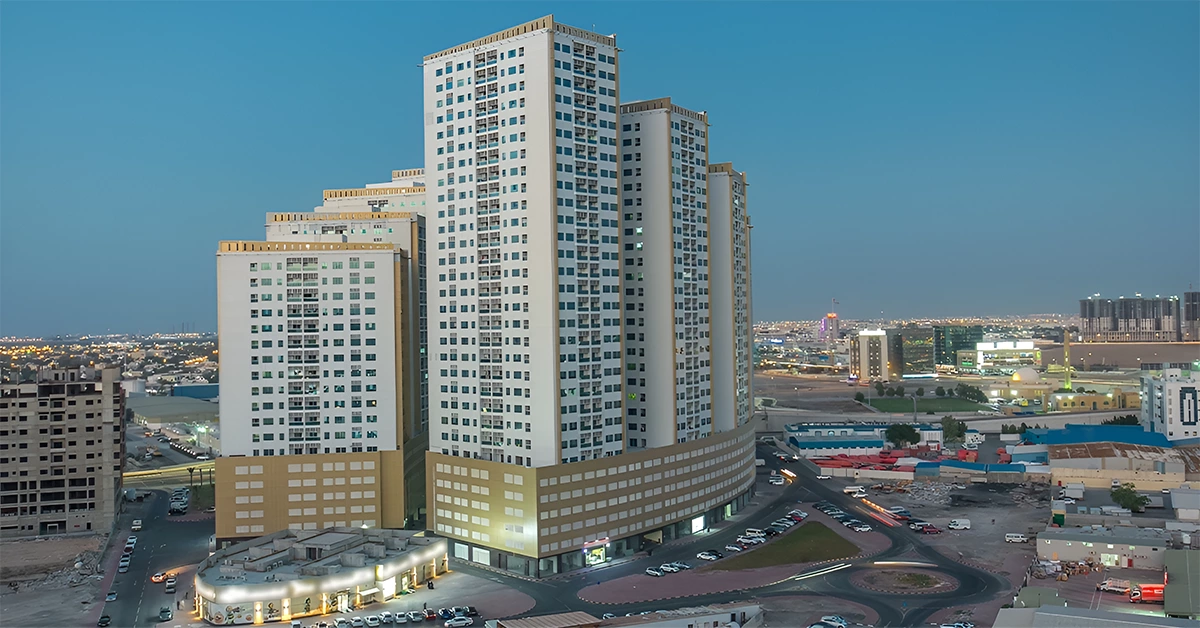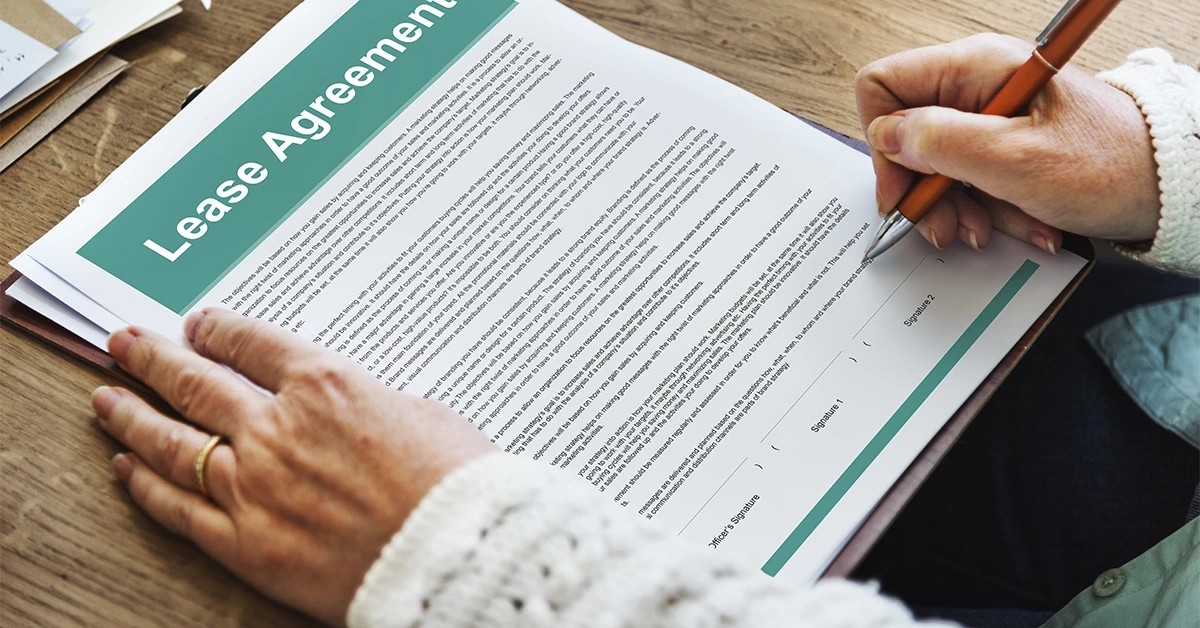Ajman has increasingly become a popular destination for residents seeking affordable living, easy commutes and a quieter lifestyle compared to Dubai or Abu Dhabi. Whether you’re a first-time renter or relocating within the UAE, renting a property in Ajman can be a smooth process if you understand the local rental laws, expectations and hidden costs.
From legal documentation to tenancy contract terms and rights as a tenant, let’s go through all the essential things to consider before renting in Ajman.
- Legal Requirements and Documentation
- Understand the Tenancy Contract
- Budgeting and Additional Expenses
- Choosing the Right Location
- Types of Rental Homes in Ajman
- Inspect the Property Thoroughly
- Maintenance and Repairs
- Rent Increase and Eviction Regulations
- Contract Registration Through Tasdeeq
- Short-Term Rentals and Holiday Homes
- Mistakes to Avoid When Renting in Ajman
- FAQs
Legal Requirements and Documentation
In order to rent a property in Ajman, the tenant is required to fulfil some legal formalities and provide the right documents. Valid UAE residence visa and Emirates ID are obligatory, and the tenancy agreement should be registered in Tasdeeq for legal enforcement.

Documents needed for tenancy and Tasdeeq registration
- Valid Emirates ID
- UAE residence visa
- Passport copy (with visa page)
- Signed tenancy contract
- Landlord’s title deed
- Recent passport-size photograph (in some cases)
- Salary certificate or proof of income (if requested)
- Previous Tasdeeq contract (for renewals)
Understand the Tenancy Contract
The Ajman tenancy contract is more than just paperwork; it’s a legally binding agreement that outlines your rights and responsibilities as a tenant. It typically runs for 12 months. Ensure you read the entire contract carefully and clarify who will be responsible for maintenance, utility payments, and repairs.
The contract should mention:
- Names of both the tenant and the landlord
- Property address
- Total annual rent
- Number of payment cheques
- Security deposit amount
- Terms for renewal or termination

Budgeting and Additional Expenses
While properties for rent in Ajman are generally more affordable than in neighbouring emirates, it’s important to budget for more than just the rent. Tenants are typically required to pay a security deposit (usually one month’s rent) and a real estate agent’s commission if an agent is involved, often around 5% of the annual rent.
You’ll also be responsible for monthly utility and service bills, including:
- FEWA (Federal Electricity and Water Authority)
- Internet and TV services
- Cooling charges (if applicable)
- Building fees for amenities like parking, gym or security
Choosing the Right Location
Ajman offers a mix of beachfront living, quiet family neighbourhoods and budget-friendly urban apartments. Popular areas include Ajman Corniche for sea views, Al Nuaimiya for access to shops and restaurants and Al Rashidiya for family-friendly environments and schools.
When choosing a location, consider proximity to your workplace, traffic conditions, nearby hospitals, schools and availability of public transport. If you don’t drive, make sure your area has accessible taxis or buses.
Other Communities in Ajman
Ajman offers a mix of vibrant neighbourhoods and peaceful residential areas, with several communities popular among both renters and buyers. Expats can own property in Ajman as it has various freehold areas, making it an attractive option for long-term living and investment.
- Al Rawda
- Al Nuaimiya
- Al Mowaihat
- Al Yasmeen
- Al Zahya
- Ajman Downtown
- Emirates City
Types of Rental Homes in Ajman
Ajman features a wide range of residential options for tenants, making it easy to find something that fits your lifestyle and budget. Whether you’re searching for apartments for rent in Ajman in high-rise buildings or spacious villas for rent in Ajman within quiet suburban communities, there’s something for everyone.
Here are the common types of rental homes available:
- Studio Apartments
- 1 to 3-Bedroom Apartments
- Villas and Townhouses
- Furnished and Semi-Furnished Units
Inspect the Property Thoroughly
Before moving in, always inspect the property in person. Check for signs of wear and tear, leaks, mould, broken fixtures, faulty air conditioning and proper functioning of water and electrical systems.
It’s good to document the condition of the property by taking photographs or videos during your initial inspection. This can protect you from future disputes regarding the return of your security deposit. If anything needs fixing, ensure the landlord commits to resolving the issues before handing over the keys.
Maintenance and Repairs
One of the most overlooked aspects of renting is understanding who is responsible for maintenance. In Ajman, landlords are typically responsible for major repairs such as structural issues, plumbing or electrical problems.
However, tenants may be expected to handle minor maintenance, such as replacing light bulbs or fixing small leaks. Some buildings offer 24/7 maintenance services or have dedicated facility management teams; these can be helpful, especially in emergencies.
Ask the landlord or agent about the process for reporting maintenance issues and how quickly they are resolved.

Rent Increase and Eviction Regulations
Ajman’s rental laws offer protection to tenants by regulating how and when landlords can increase rent. A landlord must provide at least 90 days’ written notice before the end of the lease term if they plan to raise the rent. Without this notice, the rent cannot be increased legally.
When it comes to eviction, landlords are only allowed to evict tenants under specific circumstances, such as non-payment of rent, misuse of the property or if the landlord plans to occupy or sell the unit. Even then, they must give proper written notice.
Understanding your rights as a tenant can help you avoid unnecessary disputes and ensure your tenancy is legally protected.
Contract Registration Through Tasdeeq
Registering your tenancy contract with Tasdeeq is mandatory in Ajman. It gives your lease legal validity and is required to activate utilities like FEWA. Without registration, you may also face issues with visa renewals or filing rental complaints.
To register, you need a signed lease, Emirates ID, passport copy and the landlord’s title deed. Both parties must be present or represented, and a small fee applies based on the annual rent.
Short-Term Rentals and Holiday Homes
If you’re looking to rent a property in Ajman for a few weeks or months, keep in mind that short-term rentals are regulated. Property owners must have a valid license, meet safety standards and pay tourism and VAT fees to legally offer holiday homes.
As a tenant, make sure the property is officially approved for a short-term stay. Avoid sublets without proper documentation, as this could lead to eviction or legal issues. Always ask for proof of holiday home registration before finalising your booking.

Mistakes to Avoid When Renting in Ajman
Renting a property in Ajman can be smooth and affordable, but only if you avoid common mistakes that many tenants make, especially those unfamiliar with local laws and rental practices.
- Skipping Tasdeeq registration
- Not reading the contract carefully
- Paying without a receipt or proof
- Ignoring the condition of the property
- Trusting verbal agreements
- Renting from unlicensed landlords or agents
FAQs
Landlords must give 90 days’ written notice before raising rent. Evictions are only allowed under specific legal reasons, like non-payment or property misuse. All contracts must be registered with Tasdeeq for legal protection.
Expats can rent and own property in designated areas. A valid residence visa, Emirates ID and Tasdeeq registration are required. Expats have the same rental rights and protections as UAE nationals.
Renting in Ajman is a practical choice for many UAE residents due to its affordability, peaceful communities and growing infrastructure. However, it’s essential to approach the rental process with full awareness of your rights, responsibilities and the legal framework. From ensuring Tasdeeq registration to clarifying maintenance obligations and inspecting the property, each step plays a crucial role in securing a smooth tenancy.
Furthermore, you can also explore the UAE tenancy laws on the Property Finder Blog.